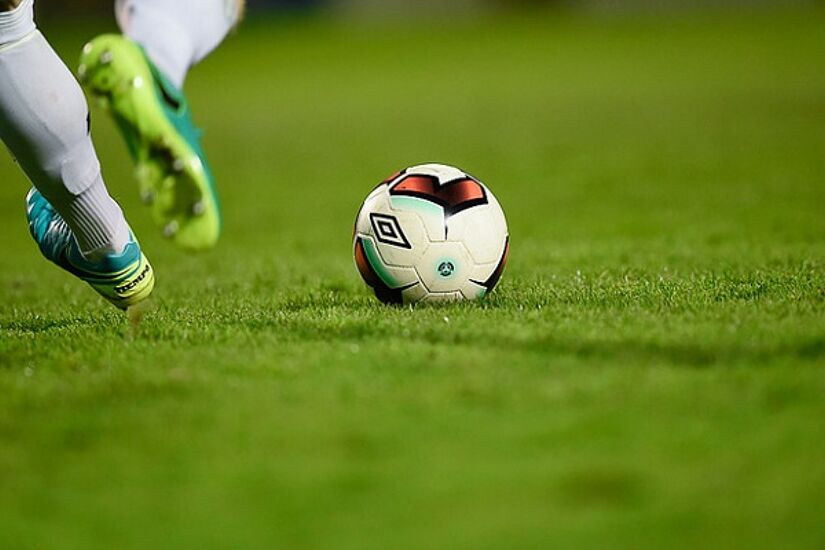When you come back, you get a rude awakening - Stephen Paisley
Three-time FAI Cup winner and current PFAI Treasurer Stephen Paisley has sampled his fair share of League of Ireland clubs’ precarious monetary positions. With a career now based in the financial sector, Stephen recently spoke to ExtraTime.ie about his playing days, injuries and our domestic game’s wellbeing.
Paisley joined Manchester City from Cherry Orchard in 1999 and the teenager spent three and a half years at Maine Road without a senior appearance, while the club yo-yoed between divisions: “Joe Royle was manager when I went over and I felt there was an opportunity to progress to the first team if you performed well. When Kevin Keegan took over, the club went up to the Premiership. There was an injection of funds, foreign players came in and that stunts your development. You have to show the manager what you can do in the reserves when you’re young, but when that side is clogged up with fringe players, it becomes more difficult.”
Released by Manchester City during the summer of 2003, the Dubliner signed for Alan Mathews’ Longford Town, capturing the FAI Cup in his maiden season and following up with both domestic cup winner’s medals the next year: “The perception in England, without having played in the League of Ireland, is that it’s easier than what it is. When you come back, you get a rude awakening. You realise how competitive it is and that there’s quality throughout. You have to up your game to compete and it takes a few months to get your head around it and become used to the set-up”
After four years with the midlands club, Stephen arrived at St Patrick’s Athletic as a free agent prior to the upcoming 2007 season: “Financially, Longford Town went through a difficult spell. A lot of us were allowed to go on a free transfer, which I actively pursued and St Patrick’s Athletic came in for me. Had Longford been commercially sound, they would have been competitive for many years and even pushed for a league title or another FAI Cup.”
Twice a league runner-up with the Saints, Paisley and seven other players found themselves surplus to requirements at the end of 2008 due to the Inchicore outfit’s financial situation: “I would’ve liked to have stayed because I enjoyed it. They had a strong side, but again in the domestic game, you can’t plan long-term without a sound business footing. I had a splendid season and walked into the club expecting a new contract and it just wasn’t on the table. It didn’t matter how you performed, as the club didn’t have the funds. Anyone out of contract were released and had to get on the League of Ireland merry-go-round again.”
Despite Shamrock Rovers’ interest, Stephen signed for First Division side Sporting Fingal, where he was appointed captain and they also facilitated his studies at DCU, while still employed as a full-time player: “When you’ve been burned by a number of clubs, you have to focus on a career pathway outside of football. The scholarship tie-in was attractive and allowed me to achieve a master’s degree. I think that’s the way forward, as football and a career should go hand in hand.”
Sporting Fingal’s rapid rise within the League of Ireland saw them promoted to the Premier Division and land the FAI Cup in 2009, but did Paisley suspect their eventual demise during his time with the club?
“When I joined there were big plans … They wanted to develop a stadium. Nothing surprises me in football, what with the experiences I’ve had and you have to be adaptable to the challenges thrown up at you. I left Sporting Fingal six months before they encountered difficulty, but I wasn’t shocked when I heard about it ... That’s the nature of the league, unfortunately.”
Stephen swiftly returned to League of Ireland football in 2010, reuniting with Alan Mathews, who was then Shelbourne’s manager: “We’d worked successfully together at Longford and he’s a good guy. I knew what I was getting with him.”
2011 witnessed the Reds losing the First Division title on the last day to Cork City and also finishing as FAI Cup runners-up after a penalty shoot-out defeat to Sligo Rovers: “For the Cork City game, I was carrying an injury and the cup final was just around the corner, so I couldn’t risk playing. It was disappointing that we didn’t complete the year with the title, but the primary objective was always to get promoted. With the FAI Cup decider coming up, we had to get over it fast. During the cup final we played well and had a player sent-off early. We stayed in it though team work and commitment. To be beaten on penalties was heartbreaking and harder than missing out on the First Division trophy.”
Bohemians became Paisley’s final League of Ireland club, but following just four Premier Division appearances in 2013, numerous other factors outweighed the argument for prolonging his playing days: “Physically, it got too difficult to compete with the younger guys. I was picking up plenty of injuries and off the field, with work, it’s hard to maintain the level of fitness that you were used to. When I joined Bohs, I wasn’t able to give 100% in training and play to my full potential. Rather than dragging it out for any longer, I just felt it was time for me to step away and focus on other things. I was 29 when I retired and the game’s deteriorating financial side saw a lot of other players give up about the same period.”
In addition to being PFAI Treasurer, Stephen also holds a Certificate of Coaching, while he’s also open to alternative avenues within the game: “As PFAI Treasurer, I try to help with players’ welfare. In coaching badge terms, I’ll look to pursue them in the near term and would like to get more involved with media work also.”


